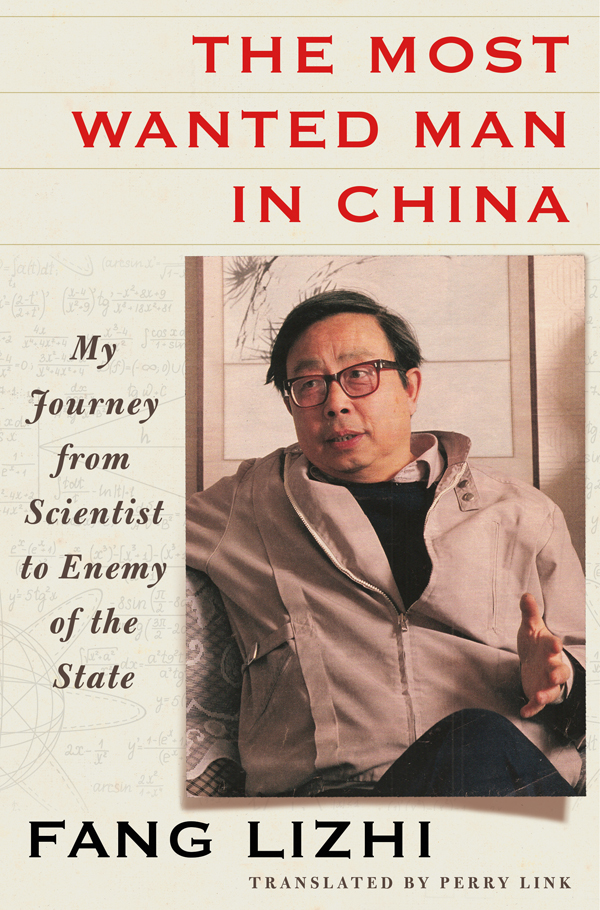
The Most Wanted Man in China
My Journey from Scientist to Enemy of the State
کتاب های مرتبط
- اطلاعات
- نقد و بررسی
- دیدگاه کاربران
نقد و بررسی

November 30, 2015
In this harrowing memoir, Chinese physicist Fang (1936–2012) chronicles his increasingly perilous political status before his exile to America, where he became a professor at the University of Arizona. This meditation on “Mao’s whip of power” and story of courtship under duress was composed in 1989, while Fang and his wife were in protective custody at the U.S. embassy in Beijing after being expelled from the Communist Party of China (CPC) by Deng Xiaoping. Fang opens with his upbringing in Beijing and education at Peking University in the 1950s and describes his struggles as the scientific community fell out with Mao’s ideology. He was recruited by the CPC for a secret cadre of nuclear physics majors, but his opposition to Mao’s Anti-Rightist Movement earned him his first sentence of hard labor and set him on a course of political agitation. Despite his value as a scientist, Fang’s subversiveness proved too much for the CPC, particularly during the student protests that led to the bloody events at Tiananmen Square in 1989. China’s economic metamorphosis and the CPC’s program for “erasing the memory of protest” have blurred recollections of Tiananmen, as Fang predicted, but his book serves as a testimonial to the students killed there.

Starred review from November 15, 2015
A dissident astrophysicist who died in 2012 offers rare, revealing glimpses inside the opaque Chinese communist system. Fang (b. 1936) wrote this memoir while he and his wife, Li Shuxian, were offered refuge in the U.S. Embassy in Beijing over the course of 13 months following the Tiananmen Square massacre of 1989, after which he eventually settled as a professor of physics at the University of Arizona. In this eloquent memoir, Fang has utterly shed his illusions about the Communist Party, which the Beijing-born author joined at age 12. Enamored by physics, he gradually came to grasp that the communist formula was anathema for the practice of independent thinking that science required. As an idealistic youth in the Institute of Modern Physics, at Peking University, Fang organized meetings and "class-struggle campaigns." Denounced as a "rightist" in 1958, he would be exiled from his physics work four different times between then and the 1970s and sent to the farm fields because his "thinking needed reform." In between, he was assigned to teach at the University of Science and Technology of China in Beijing. It wasn't long before Fang realized the absurdity of "socialism saving China," one of numerous ironic slogans during the brutal years of famine, Cultural Revolution, and Mao Zedong's "self-proclamation as emperor" when Fang was often separated from his wife and children. His lectures in the field of cosmology stimulated "counterrevolutionary" criticism, and his sense of urgency for reform and getting modern science accepted in China ("opening in all directions") was denounced as "bourgeois liberal thinking." His support of his students and writing of a letter urging amnesty for political prisoners in 1989 helped ignite the Tiananmen Square uprisings that spring, leading to his taking refuge in the U.S. Embassy. Throughout the book, Fang is candid about the development of his thinking, and his prose is clean, readable, and often forceful. A wonderfully crafted memoir, shimmering with intellectual honesty.
COPYRIGHT(2015) Kirkus Reviews, ALL RIGHTS RESERVED.

October 1, 2015
Leading Chinese astrophysicist Fang was cast out of his job, deprived of his Party membership, and shipped off to a remote village to become a farm laborer for promoting reforms within the Communist Party. Repeatedly denounced, rehabilitated, and denounced again, he proved an inspiration to the Tiananmen Square protesters and fled the country with his wife, becoming professor of physics at the University of Arizona until his death in 2012. Here's his life story.
Copyright 2015 Library Journal, LLC Used with permission.

























دیدگاه کاربران